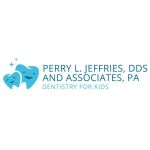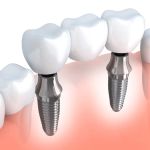Understanding the Impact of Pregnancy on Dental Health
As a soon-to-be mom, you're probably juggling a lot of things on your plate — from prenatal appointments to baby preparations. One important aspect that often gets overlooked during pregnancy is dental health. Believe it or not, pregnancy can significantly affect your oral health, leading to issues that may affect your teeth and gums. But don’t worry — there are simple and effective ways to protect your smile while you're expecting.
1. Hormonal Changes and Their Effects on Your Teeth
During pregnancy, the body undergoes significant hormonal changes that can have a direct impact on your oral health. Increased levels of hormones, especially progesterone and estrogen, can cause your gums to become more sensitive. This heightened sensitivity can lead to a condition known as pregnancy gingivitis, where the gums become swollen, red, and bleed easily during brushing or flossing.
One of the key issues here is the inflammation that affects the gum tissue. If left unchecked, pregnancy gingivitis can progress into more serious gum disease (periodontitis), which can cause tooth loss and increase the risk of preterm labor. This is why it’s so important to maintain good oral hygiene and regularly visit your dentist during pregnancy.
2. Pregnancy and Tooth Erosion: What You Should Know
Another common oral health issue during pregnancy is tooth erosion, which occurs when acid weakens and wears down the tooth enamel. Pregnancy-related nausea, often experienced in the first trimester, can lead to vomiting, which introduces stomach acids into your mouth. These acids can erode the enamel of your teeth, increasing the risk of cavities and decay.
To combat tooth erosion, it's recommended to rinse your mouth with water after vomiting to wash away acids, and wait at least 30 minutes before brushing your teeth to avoid damaging the enamel further. Additionally, maintaining a balanced diet and staying hydrated can help protect your teeth from erosion.
3. Morning Sickness and Its Effect on Oral Hygiene
Morning sickness is a common symptom during pregnancy, and while it can make you feel awful, it can also have an adverse impact on your oral health. The frequent vomiting associated with morning sickness can bring acids into your mouth, leading to enamel erosion, as mentioned earlier.
One effective way to manage this is by using a fluoride toothpaste designed to protect against enamel erosion. Drinking plenty of water and eating small, healthy snacks throughout the day can help minimize nausea and reduce the acidic impact on your teeth.
4. The Role of Proper Oral Hygiene During Pregnancy
Pregnancy is an excellent time to make sure you’re following a diligent oral care routine. Brushing your teeth twice a day, flossing regularly, and using a fluoride mouthwash are all critical steps for keeping your teeth and gums healthy. Furthermore, attending regular dental checkups is crucial for preventing pregnancy-related oral health issues. Your dentist may advise you on specific treatments to prevent gum disease or tooth decay during this sensitive time.
5. Dental Visits and Professional Care During Pregnancy
It's completely safe to go to the dentist during pregnancy, and it's actually highly recommended! In fact, routine dental visits can help detect problems like gum disease, cavities, or tooth infections early on. If you’re concerned about any procedures, be sure to discuss them with your dentist beforehand. Most dentists will take extra precautions during pregnancy, avoiding any treatments that may pose a risk to the baby.
Many women are hesitant about dental x-rays during pregnancy, but modern dental practices use lead aprons and thyroid collars to ensure minimal exposure to radiation. Always inform your dentist that you are pregnant, so they can tailor your treatment plan accordingly.
6. Maintaining Healthy Teeth During and After Pregnancy
As you progress through your pregnancy and prepare for the arrival of your baby, it's essential to continue maintaining your oral health. This will not only benefit you but also your baby. There’s evidence to suggest that poor oral hygiene during pregnancy can increase the risk of delivering prematurely or having a low birth weight baby. Therefore, it’s crucial to continue brushing, flossing, and maintaining a healthy diet throughout your pregnancy.
Additionally, some studies show that oral bacteria associated with gum disease can be transmitted to your baby during childbirth. So, keeping your gums healthy not only ensures your well-being but also provides a healthy environment for your baby.
7. Tips for Keeping Your Smile Healthy During Pregnancy
- Brush your teeth twice daily with fluoride toothpaste.
- Floss at least once a day to remove plaque buildup between your teeth.
- Visit your dentist regularly for checkups and cleanings.
- Use mouthwash that is alcohol-free and contains fluoride.
- Drink plenty of water to help wash away food particles and acids.
- Eat a balanced diet rich in calcium, vitamin D, and other essential nutrients.
By following these simple steps, you can protect your teeth and gums while pregnant, ensuring that you maintain a healthy smile for yourself and your baby.







 Perry L Jeffries DDS and Associates PA - Raleigh2.0 (53 review)
Perry L Jeffries DDS and Associates PA - Raleigh2.0 (53 review) Almond Dental Maple Grove4.0 (413 review)
Almond Dental Maple Grove4.0 (413 review) Waterford Dental Health4.0 (1118 review)
Waterford Dental Health4.0 (1118 review) Bismarck Advanced Dental and Implants4.0 (657 review)
Bismarck Advanced Dental and Implants4.0 (657 review) Chalet Dental Care5.0 (739 review)
Chalet Dental Care5.0 (739 review) Straumann USA LLC3.0 (10 review)
Straumann USA LLC3.0 (10 review) The Importance of Oral Health Education During Pregnancy for a Healthy Pregnancy
The Importance of Oral Health Education During Pregnancy for a Healthy Pregnancy Best Tips for Brushing Your Teeth Properly for Healthy Gums: Essential Techniques for Oral Health
Best Tips for Brushing Your Teeth Properly for Healthy Gums: Essential Techniques for Oral Health Why Skipping Dental Checkups Can Lead to Bigger Oral Health Problems
Why Skipping Dental Checkups Can Lead to Bigger Oral Health Problems Advantages of Porcelain Dental Restorations
Advantages of Porcelain Dental Restorations How Can Diabetes Cause Tooth and Gum Problems? Preventing and Managing Oral Health Issues
How Can Diabetes Cause Tooth and Gum Problems? Preventing and Managing Oral Health Issues Healthy Habits for Promoting Good Oral Health and Hygiene: Tips for a Healthy Smile
Healthy Habits for Promoting Good Oral Health and Hygiene: Tips for a Healthy Smile